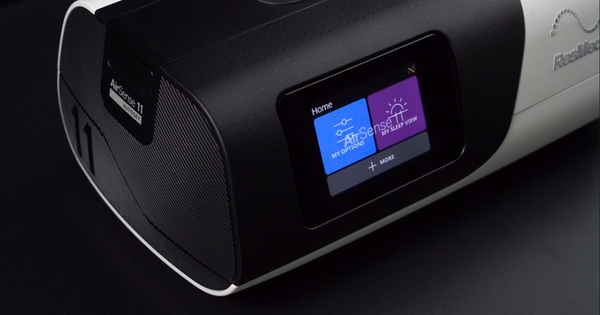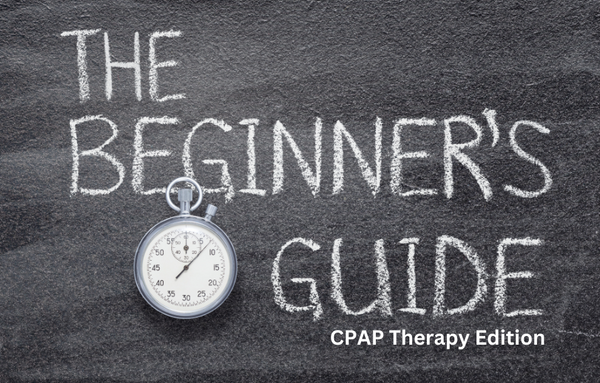Sleep Apnea And Heart Disease: A Dangerous Pair
July 23, 2020

A Risky Link: What Is The Relationship Between Sleep Apnea And Heart Disease
Sleep Apnea doesn’t just affect sleep quality or lung function. It also impacts the heart. There have been numerous studies and research papers written over the years documenting the dangerous link between untreated Sleep Apnea and heart disease.
But, how exactly does this link develop? As you may already be aware, Obstructive Sleep Apnea is a sleep disorder that causes a full or partial blockage in the upper airway passage resulting in reduced oxygen intake and poor sleep quality. Each time that an apneic event happens, the body’s oxygen levels drop. To counteract this, the body reacts by producing stress hormones and brain signals that jerk you awake. When left untreated, these events can happen multiple times in a single night.
Over time, the toll that these events have on your body begins to impact the heart. For example, when this stress hormone is released on a continuous basis, it increases the likelihood of developing high blood pressure and other circulation problems. Without effective treatment, these symptoms will inevitably lead to the development of heart disease.
Which Sleep Apnea Side Effects Impact The Heart Most?
Now, that you are aware of the dangerous relationship that can develop between untreated OSA and heart disease, let’s look at the exact ways that this sleep disorder impacts the organ itself.
Epinephrine Spikes
Epinephrine spikes, also known as adrenaline, are commonly experienced during an apnea episode. When oxygen levels drop due to laboured breathing and reduced airflow, the body dumps epinephrine causing a spike in normal hormone levels experienced during regulated sleep. This spike of adrenaline creates a snowball effect that promotes high blood pressure.
As we’ve already talked about, repeatedly experiencing high amounts of epinephrine and blood pressure leads to cardiovascular complications.
Irregular Heartbeat
Many sleep specialists have found that individuals with OSA can experience atrial fibrillation (an irregular heartbeat) and heart arrhythmia. Research has found that the more times that a person experiences low oxygen saturation levels (below 90%) in a short space of time, the more of an impact it has on the heart’s ability to regulate its pumping function.
Even while some arrhythmias and atrial fibrillation may be innocent and not cause long-lasting damage to the heart, when coupled with Sleep Apnea it is a cause for concern. Without immediate action, irregular heartbeats can increase the risks of blood clots, heart blockages and stroke.
Weight Issues
Sleep Apnea and weight issues is another topic in itself, but, it is important to recognize how this OSA symptom can lead to heart damage. While many experts have noted that those individuals that are overweight are more prone to developing OSA, this sleep disorder can cause weight fluctuations.
The reason that this happens is due to the fact that Sleep Apnea causes chronic fatigue. When individuals deal with prolonged tiredness this can lead to poor decision making and the development of unhealthy eating habits. Unhealthy weight levels already contribute to poor heart health and is a leading cause of heart disease. Sleep Apnea only exacerbates this issue.
Elevated Heart Rate
Finally, another direct side effect of an apneic event is an elevated heart rate. When you stop breathing, your heart rate initially drops. Once adrenaline is released to counteract an apnea episode, this causes the heart to go into overdrive and elevate its heart rate dramatically. Over time, this physiological change becomes more permanent and has the ability to wreak havoc on an individual’s resting heart rate outside of apneic events.
This translates to the heart working overtime when it doesn’t have to. If left untreated, it has the ability to interfere with normal ventricular function and in some cases can lead to the development of a condition called hypoxia.
CPAP Therapy: How Effective Is It At Treating Cardiovascular Problems?
While there will be cases where the heart damage caused by untreated OSA will need other extensive treatments to improve heart health, CPAP therapy has been successful in preventing and reducing the symptoms that lead to heart disease.
When prescribed by a sleep specialist, CPAP therapy has the ability to improve heart-related symptoms that arise due to OSA. As this form of treatment is centred on improving oxygen flow both to a patient’s airways and around the body, it can effectively lower blood pressure and promote blood vessel health. Studies have found that those who are using CPAP therapy to treat OSA have lower rates of heart attacks and strokes.
However, it is important to note that depending on the severity of your symptoms, you may need to also take medication or other forms of therapy to improve your heart health. Speaking with a doctor in conjunction with a sleep specialist is the best option if you believe that you may be experiencing Sleep Apnea and heart disease.
Additional Treatment Options: How To Look After Your Heart Health & Sleep Quality
Along with the golden standard for Sleep Apnea treatment, CPAP therapy, OSA patients are always recommended to adopt a healthier way of life that promotes great sleep quality and ideal heart health. There are many natural treatment options that you can include as part of your daily routine to improve your health.
Consider incorporating the following as part of a new and improved lifestyle:
Regular Exercise - Exercising regularly, even for just 30 minutes a day, has been known to improve heart functioning as well as sleep quality. Not only does it keep us strong and fit but physical activity can also help us drift off to sleep faster at night.
Healthy Diet - Sleep Apnea is just one of many factors that impact our hearts and sleep habits. Eating unhealthily contributes to heart disease and can lead to sleep disruptions. Make sure to cut out unnecessary foods that are high in fat and sugar content. Instead, focus on balanced foods that give your body the right levels of nutrients that it needs.
Avoid Too Much Caffeine & Alcohol - Excess stimulants such as caffeine and alcohol are detrimental to sleep quality. It is advised not to consume caffeinated beverages after 1 PM so as to prevent stimulants from keeping you awake at night.
Establish A Relaxing Evening Routine - Lastly, create an evening routine that is based around relaxing activities such as reading, meditation or taking a warm bath. All digital devices should be removed from your sleep environment and shut off two hours before going to sleep. This promotes relaxation in both the body and the mind.
Sleep Apnea, when left untreated can be fatal as it can cause the development or exacerbate existing heart-related conditions. Treatment options for Sleep Apnea and heart disease must be sought early but the good news is that with the right treatment plan in place, symptoms can improve.
If you have recently been diagnosed with Sleep Apnea and are beginning your journey with CPAP machines, feel free to reach out to our experts here at CPAP Machines.ca. We ship CPAP supplies including machines and masks all over Canada.
Share:
Leave a comment
Comments will be approved before showing up.



